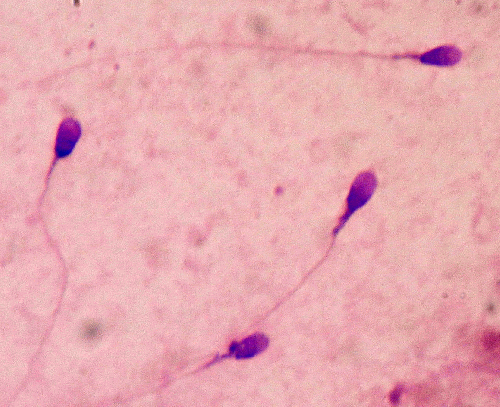A new study collating fertility research from around the world shows that sperm counts - closely related to male fertility, reproductive health and overall health - not only continue to decline, but are declining at an accelerating pace. The researchers describe this accelerating drop in sperm counts as a "looming crisis," and join with other fertility specialists in an urgent call for a multidisciplinary international program to track reproductive health globally and try to identify what's causing this worsening problem.
An international research team led by epidemiologists Hagai Levine and Shanna Swan combed the scientific literature for studies offering reliable measures of sperm concentration (SC) and total sperm count (TSC) between 1981 and 2013, and again for the period between 2014 and 2019. For the earlier period they were only able to find adequate data for North America, Europe and Australia, while for the more recent period they gleaned data from those regions plus South and Central America, Asia and Africa.
They found a remarkable decline in sperm counts in every region. Between 1973 and 2018, average sperm concentration was cut in half, falling by about 1.2% per year prior to the year 2000, and accelerating to 2.6% per year since 2000. Total sperm counts fell even more dramatically, showing a 62.3% decline between 1973 and 2018. "Overall, we're seeing a significant worldwide decline in sperm counts of over 50% in the past 46 years," Levine says, "a decline that has accelerated in recent years."
The implications are huge. One out of every six couples now has trouble conceiving, while the use of assisted reproductive interventions is surging by 5% to 10% per year. In addition to infertility, lower sperm counts are associated with a variety of other health risks for men and their offspring. Levine is more than concerned. Levine and his colleagues point out that over the time span they've studied overall sperm counts have dropped from 104 to 49 million per milliliter, approaching a level below which fertility drops off dramatically. " Our findings serve as a canary in a coal mine," he says. "We have a serious problem on our hands that, if not mitigated, could threaten mankind's survival."
In these two articles the researchers did not address what is causing this worldwide decline in sperm counts. However, Swan, an environmental epidemiologist, believes that the most likely suspects are environmental, especially the accumulation of endocrine-disrupting chemicals such as pesticides and phthalates in the environment. In her 2021 book, Count Down: How Our Modern Word Is Threatening Sperm Counts, Altering Male and Female Reproductive Development, and Imperiling the Future of the Human Race, she details the research implicating such factors and what needs to be done to safeguard healthy human (and animal) development and fertility. "It's time to get started on altering these alarming trajectories and taking back the future," she writes.





